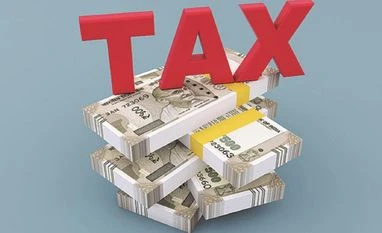In a move to ensure companies do not defer their tax liabilities for the financial year, the income-tax department has decided to keep a close watch on advance tax payments by analysing India Inc’s annual and quarterly balance sheets, as well as sectoral growth trends.
According to the I-T department’s central action plan for 2023-24, financial statements of top 100 listed companies in their last published annual reports, and quarterly reports through the year, will be analysed. Based on this study, senior officials will monitor advance tax collections of their charges. The officials have also been asked to focus on “notes” and observations on financial accounts, if any.
The tax department, according to sources, will also review growth trends in some sectors like real estate, pharmaceuticals, steel, mining, financial institutions, and gems & jewellery. “It is pertinent to study the balance sheets of companies in each sector to know whether the payment made by them is in sync with their earnings outlook,” said a tax official who did not wish to be named.
Companies would pay the first advance tax instalment on June 15. A strategy has also been made to focus on quality scrutiny of accounts before raising tax demand, and to pay special attention to the recovery of arrears.
The idea is to both widen and deepen tax bases, according to two official in the know.
Revenue maximisation plan
- I-T to analyse companies' annual and quarterly financial statements
- To focus on any notes or observations on balance sheet
- Persuade companies to not defer payment of tax dues
- Review sectoral growth trends for better mapping
The action plan, with a greater emphasis on enhancing tax collected at source and utilising the enforcement mechanism to detect tax evasion, is expected to increase the taxpayer base by 10 per cent in 2023-24.
Every person (individual, firm or company) whose estimated tax liability for the year is Rs 10,000 or more, after tax deducted at source (TDS), shall pay tax in advance during the same financial year. Advance tax is to be paid in instalments — 15 per cent on or before June 15 of the financial year, 30 per cent each by September 15 and December 15, and the remaining by March 15.
According to the central action plan, direct tax collections (actuals) for 2022-23 stood at Rs 16.26 trillion, compared with the revised estimate of Rs 16.5 trillion. Of this, corporation tax was Rs 8.2 trillion, personal income tax Rs 7.68 trillion, and securities transaction tax Rs 29,700 crore. For the current financial year, overall direct tax collections are estimated to grow 9.6 per cent to Rs 18.2 trillion.
Notably, during the September-December quarter of 2022-23, the tax department had directed a review of the instalment paid by top advance tax payers for the quarter. Sources said the department wanted to ensure that companies knew their advance tax liability on the basis of their profits and income. Since the payments for the January-March quarter were not up to the mark, the review this year was to be started in the first quarter itself, said the official quoted above.
Unlock 30+ premium stories daily hand-picked by our editors, across devices on browser and app.
Pick your 5 favourite companies, get a daily email with all news updates on them.
Full access to our intuitive epaper - clip, save, share articles from any device; newspaper archives from 2006.
Preferential invites to Business Standard events.
Curated newsletters on markets, personal finance, policy & politics, start-ups, technology, and more.
)